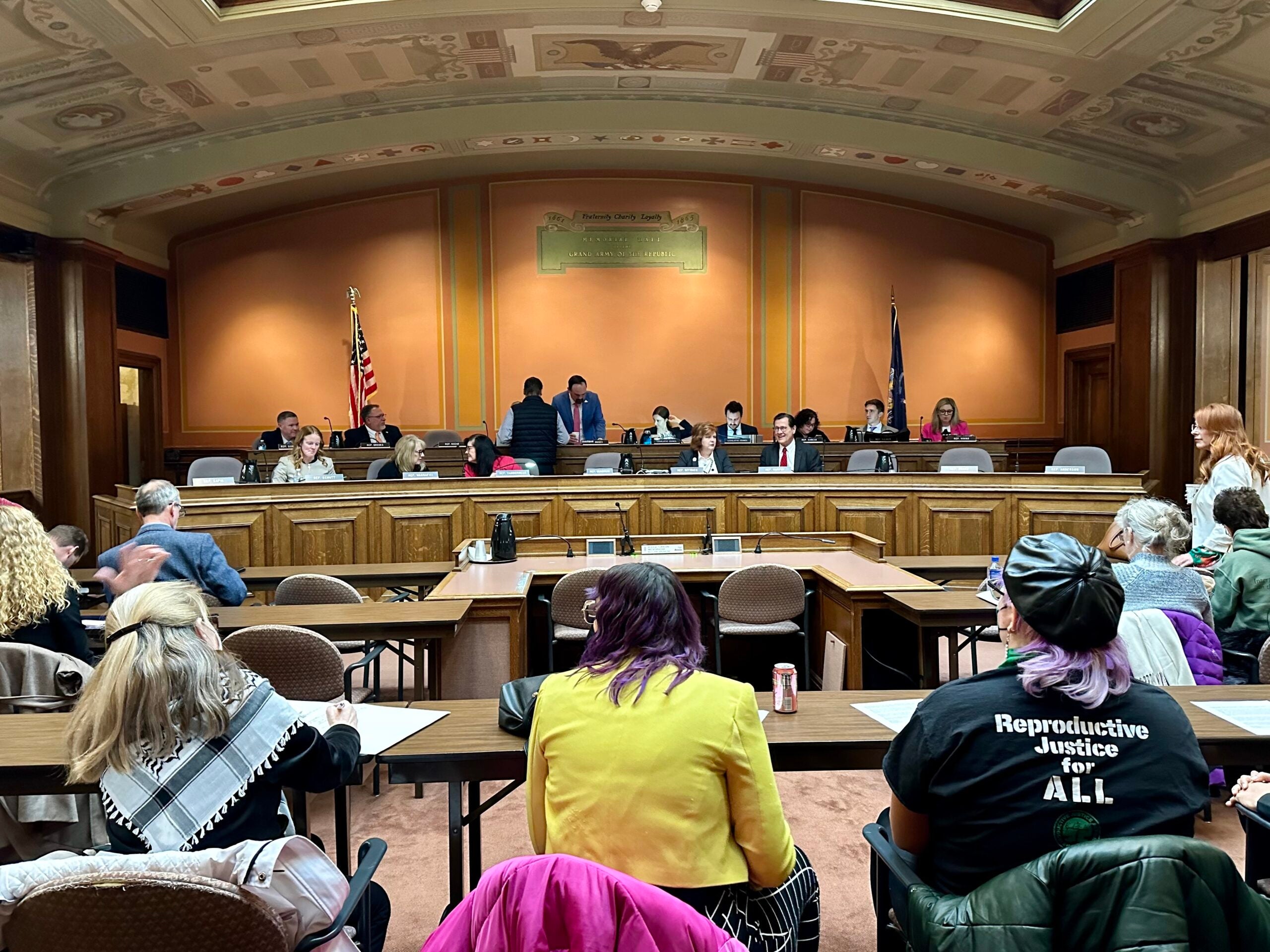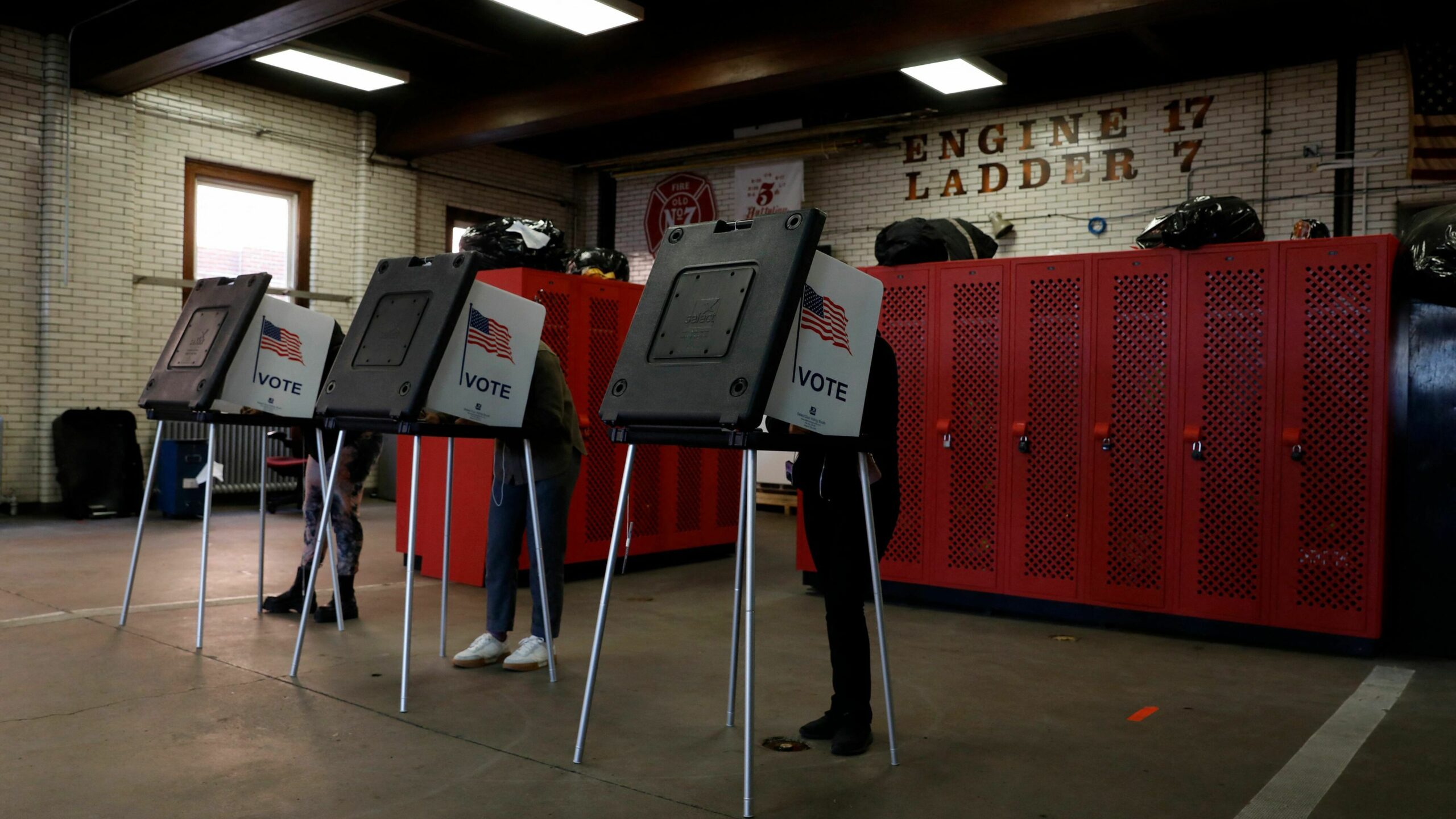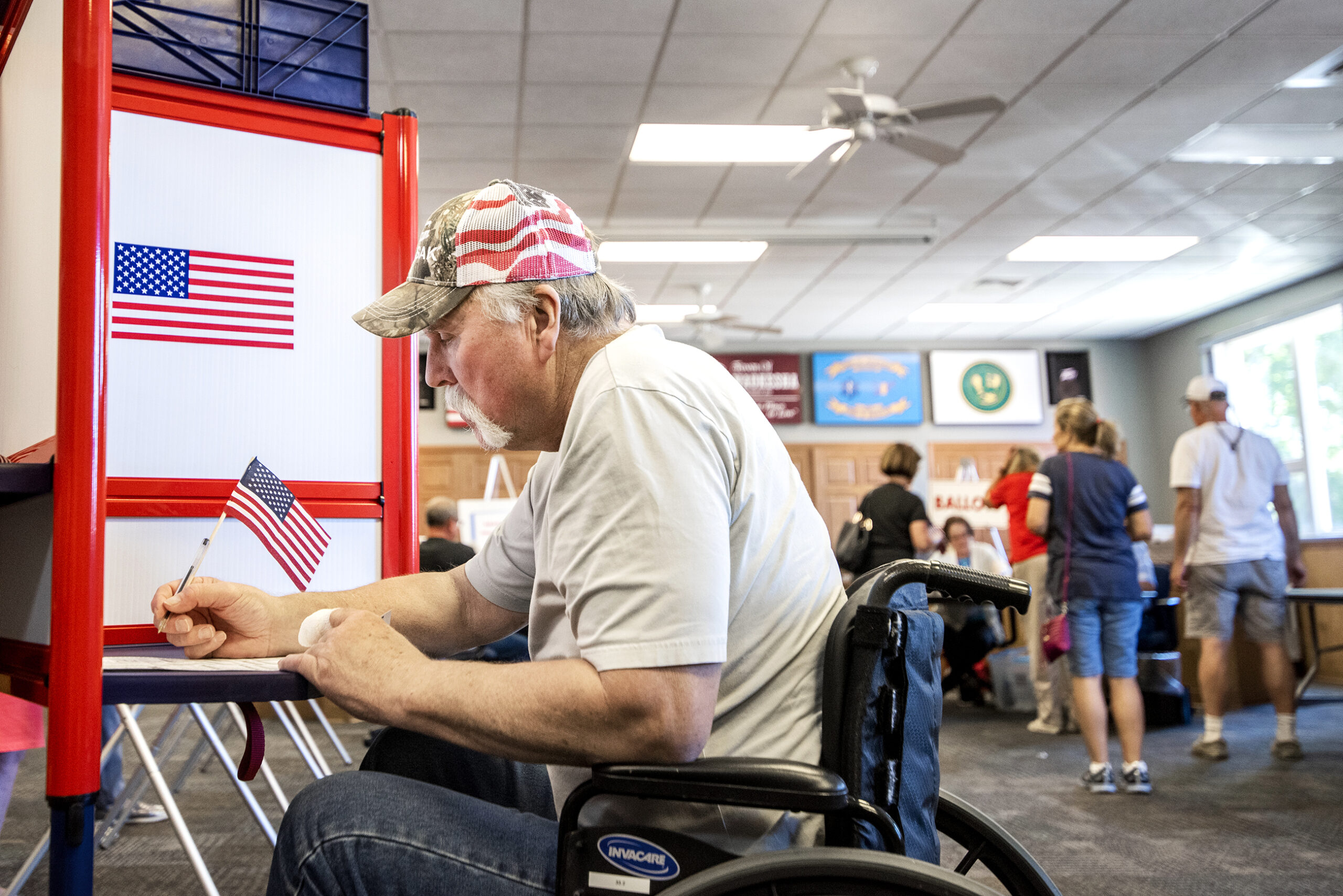Gov. Scott Walker said if courts rule against the state’s voter ID law after the legislative session ends, he would call lawmakers back for a special session to modify the law.
Speaking with reporters this morning, Walker said if the legal challenges against voter ID pending in state and federal court are successful, he’ll ask the Legislature to tweak the law to comply with those rulings so it can be enforced for the November elections.
“People overwhelmingly told us in the state they want to have voter ID,” said Walker. “If the courts, regardless of which court it would be, would say, ‘We think you can have it if not for this or that provision,’ we’d want to modify that so that a law like that were in effect before the next election.”
Stay informed on the latest news
Sign up for WPR’s email newsletter.
One modification of the current law has already passed the state Assembly but not the state Senate. It would allow people to sign an affidavit at the polls stating they are too poor to acquire a voter ID.
The director of the state League of Women Voters, Andrea Kaminsky, said that modification wouldn’t address the concerns her group has raised in its challenge of the law now pending before the state Supreme Court.
“It requires that every time you go to vote you have to request, in from of your neighbors, an affidavit, and then you have to sign it,” said Kaminsky. “This is not the kind of welcoming attitude that the state of Wisconsin has always taken when it comes to voting.”
Kaminsky said the only way to fix the law would be to expand the type and number of photo IDs that would be acceptable at the polls.
Rulings in two of the cases challenging the law in federal court could come down at any time. The two before the state Supreme Court aren’t likely to be decided until sometime this summer.
Wisconsin Public Radio, © Copyright 2024, Board of Regents of the University of Wisconsin System and Wisconsin Educational Communications Board.






